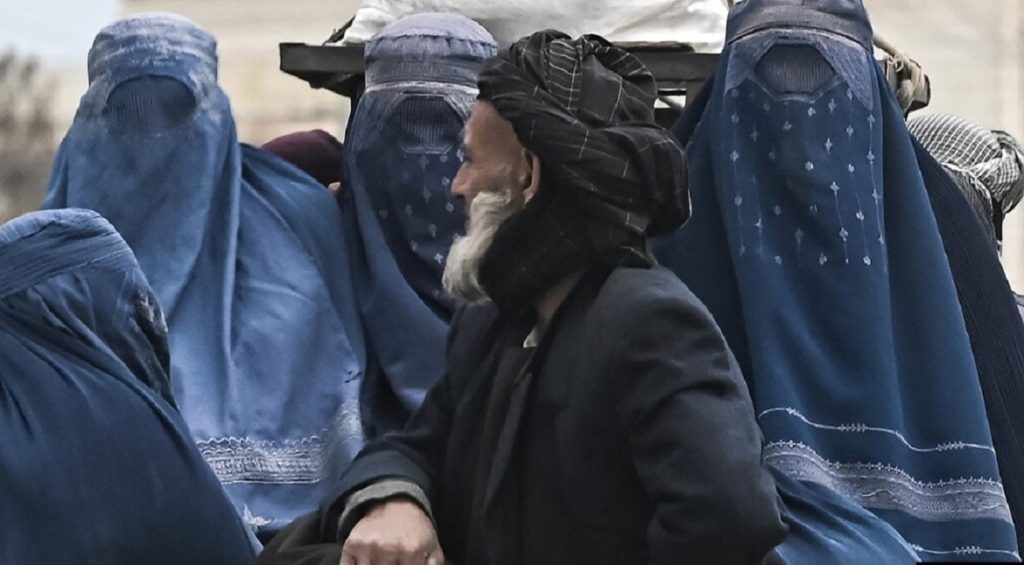By Ibrar Khan Kasi
From 15 August 2021 until date, the rights of the Afghan people have been continuously violated by the Taliban in various ways: for example, by not allowing girls access to educational institutions, such as schools, colleges and universities, and by preventing women from accessing markets without hiding their faces.
The Taliban have imposed sanctions on art, music, games, etc., and severed relations with other countries. Internationally, the Taliban government is not recognised by most countries in the world precisely because of its repression of the rights of Afghan citizens.
The Taliban do not even allow the country’s citizens to participate in peaceful protests to assert their rights.
Restrictions on women’s rights, media freedom and freedom of expression have increased exponentially. Institutions designed to uphold human rights have been severely restricted or closed down altogether. Peaceful protesters have suffered arbitrary arrests, torture and enforced disappearances. The Taliban conducted extrajudicial killings, arbitrary arrests, torture and unlawful detention of perceived opponents with impunity, creating an atmosphere of fear. Extreme poverty has increased, exacerbated by drought and other natural disasters. Public executions and flogging were used as punishment for crimes such as murder, theft, ‘illegitimate’ relationships or violation of social norms. Women’s rights continued to be attacked and their participation in public life was severely restricted. Afghanistan was the only country in the world where girls were forbidden to attend secondary school. Almost all institutions established to address gender-based violence under the previous government were closed by the Taliban.
The Taliban closed the Ministry of Women’s Affairs and replaced it with the Ministry of Propagation of Virtue and Prevention of Vice, which issued restrictive and abusive decrees on the rights of women and girls. Women who protested against these restrictions suffered illegal detentions and violence.
Girls have been prevented from attending secondary school and, since December, tertiary education. Previously, women attending universities had to learn in gender-segregated classrooms, wear head-to-toe coverings, among other restrictions. They had difficulty registering for courses and the national university entrance exam and, in some cases, were denied entry to university buildings, making higher education almost inaccessible. Women were also precluded from studying certain subjects. At the end of the year, women and girls could only attend primary school.
Women and girls were increasingly restricted from accessing other public spaces through various measures. The Taliban imposed a dress code, required women to be accompanied by a chaperone in public and banned women and girls from entering public parks. In August, the media reported that 60 female university students were denied the right to leave Afghanistan because they did not have a (mahram). These rules were applied arbitrarily and randomly and many women choose not to travel alone.
The Taliban announced that male relatives would be responsible for any violation of restrictions by women and girls in their families. This led family members to restrict the rights of female relatives for fear of reprisals by the Taliban authorities. The Taliban reprime women who protest against these restrictions through beatings, arrests, illegal detentions and arrests of family members. Some of the women arrested, including those fleeing abuse, have been charged with a vague and ambiguous ‘crime’ of ‘moral corruption’. However, after the Taliban’s seizure of power, the applicability of the laws previously in force remained largely unclear, as the Taliban publicly enforced their narrow and restrictive understanding of Sharia law in the country. Protests continued throughout the year, but were increasingly met with resistance from Taliban police, who blocked protesters and arrested journalists trying to cover the protests.
The dismantling of former government structures, including MoWA and the AIHRC, and the conversion of the judicial system to the religiously-based Sharia system, have reduced the protection previously available to women and girls; this has led to an increase in complaints of domestic violence. Courts and prosecution units that were previously in charge of investigating and adjudicating cases of gender-based violence have remained closed. The Taliban authorities and the community-based dispute resolution mechanism punished women who reported domestic violence.
From last December, the Taliban also prevented women and girls from working with NGOs. This and other Taliban restrictions on women’s right to work outside the home have greatly affected their livelihoods – particularly in households where they are the only breadwinners – at a time of increasing food insecurity nationwide.
The Taliban government structure lacked justice, truth or redress for crimes under international law or human rights violations. Courts and prosecutors did not investigate extrajudicial killings or prosecute those who committed other human rights violations. The independence of the judiciary was severely damaged by the replacement of judges and courts by the Taliban.
In October, the Pre-Trial Chamber of the ICC authorized the Prosecutor’s Office to resume investigating the situation in Afghanistan. In its decision, the Court emphasized that this investigation should cover “all alleged crimes and actors”, including “members of the armed forces or security and intelligence services of uninvolved parties”, in contrast to the Prosecutor’s previous decision to focus only on crimes committed by the Taliban and the IS-KP.
Author: Ibrar Khan Kasi – International Relations student at the University of Balochistan
(The views expressed in this article belong only to the author and do not necessarily reflect the views of World Geostrategic Insights)
Image Credit: Agence France Press
Note of the Editor: The U.N. Assistance Mission in Afghanistan, or UNAMA, has documented the alleged human rights violations in a new report published on July 17, 2023. Taliban chief spokesman Zabihullah Mujahid rejected the findings, claiming they are based on “false information” being propagated by loyalists of the former Afghan government.







